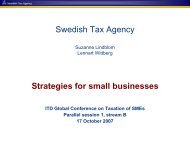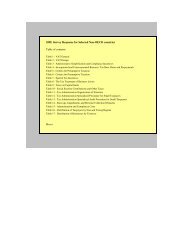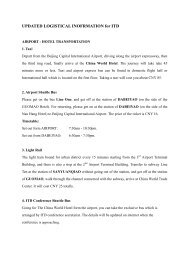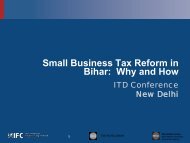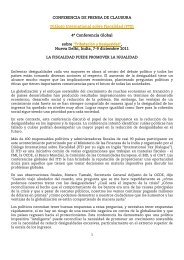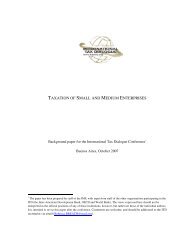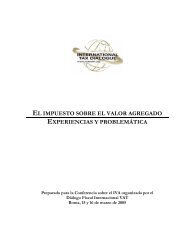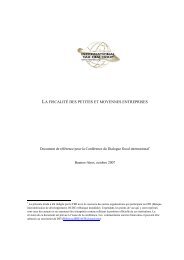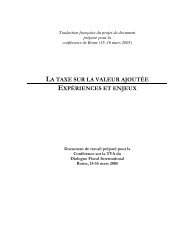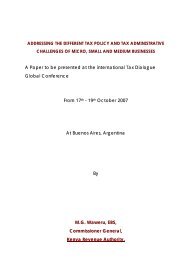Arcotia Hatsidimitris - International Tax Dialogue
Arcotia Hatsidimitris - International Tax Dialogue
Arcotia Hatsidimitris - International Tax Dialogue
You also want an ePaper? Increase the reach of your titles
YUMPU automatically turns print PDFs into web optimized ePapers that Google loves.
8. TRANSFER PRICING AND DEVELOPING COUNTRIES – 73<br />
Improving access to commercial information and comparables in developing countries<br />
The identification of comparables can create particular difficulties for developing countries wanting to<br />
undertake effective transfer pricing audits or enquiries. Some have access to business and commercial<br />
databases for use in transfer pricing enquiries but there is often a lack of financial data in their own<br />
countries that would be of use in determining arm’s length prices for independent companies. This can<br />
force tax administrations to use non-domestic comparables and in some cases to make company specific<br />
adjustments for the difference between the domestic market and the foreign market. This can add real<br />
complexity and cost as well as proving very time-consuming. ATAF is looking at the feasibility of<br />
purchasing rights to use a commercial database for collective use by its members and at the possibility of<br />
ATAF members developing their own databases.<br />
The availability of financial data in a country is greatly improved if there is a reporting system that<br />
encourages financial transparency in the corporate sector. This can be achieved by having in place a<br />
legislative framework that imposes a requirement on companies, including private companies, to file<br />
accounts and for those accounts to be publically available. This sort of requirement can be found in the<br />
company law systems of many countries. There are very good non-tax reasons for doing this, as it helps to<br />
improve the transparency of markets and so helps them to be more efficient. It helps to create the climate in<br />
which third party investors can make informed decisions about which corporations to lend to, or directly<br />
invest in. In the absence of this kind of transparency, investors and enterprises are much more likely to<br />
have to rely on personal and family connections when making financial decisions.<br />
The requirement to file accounts does impose a compliance burden on the companies affected but<br />
enterprises of any scale will need to have accounting systems in place in order to run their businesses. It is<br />
already a legal requirement in many OECD countries. Smaller companies can be subject to less stringent<br />
requirements than large companies and the local subsidiaries of MNEs, which prevents the system placing<br />
undue burdens on the SME sector. The legislative framework should also specify the accounting standards<br />
that companies should comply with, which could be local GAAP or the <strong>International</strong> Accounting<br />
Standards. A project is currently underway, led by the OECD’s multistakeholder Informal Task Force on<br />
<strong>Tax</strong> and Development, to establish good practices for transparency in the availability of company accounts,<br />
and to assist countries in putting in place rules to enable the public availability of relevant data. This is an<br />
area where the FTA could work closely with the Task Force to develop an integrated solution.<br />
The development of a legal framework for financial reporting in the corporate sector is an important<br />
first step but it needs to be backed up by an administrative mechanism for receiving the accounts of<br />
corporations and making them available for public scrutiny. In the current era that system needs to be<br />
electronic, as this is the simplest way to receive the information and the Internet is the easiest way to make<br />
the data publically available. But for many developing countries it will be hard to fund any significant<br />
capital investment in this sort of IT system and it may not represent the highest priority when funds are<br />
scarce. Fortunately, developments in the market place, particularly in the provision of computing capacity<br />
as a service, often referred to as cloud computing 2 , suggest that it should be possible to establish an<br />
electronic system for receiving and accessing company accounts relatively easily and at low cost. The<br />
diagram below illustrates how this might be done.<br />
DEALING EFFECTIVELY WITH THE CHALLENGES OF TRANSFER PRICING © OECD 2012



